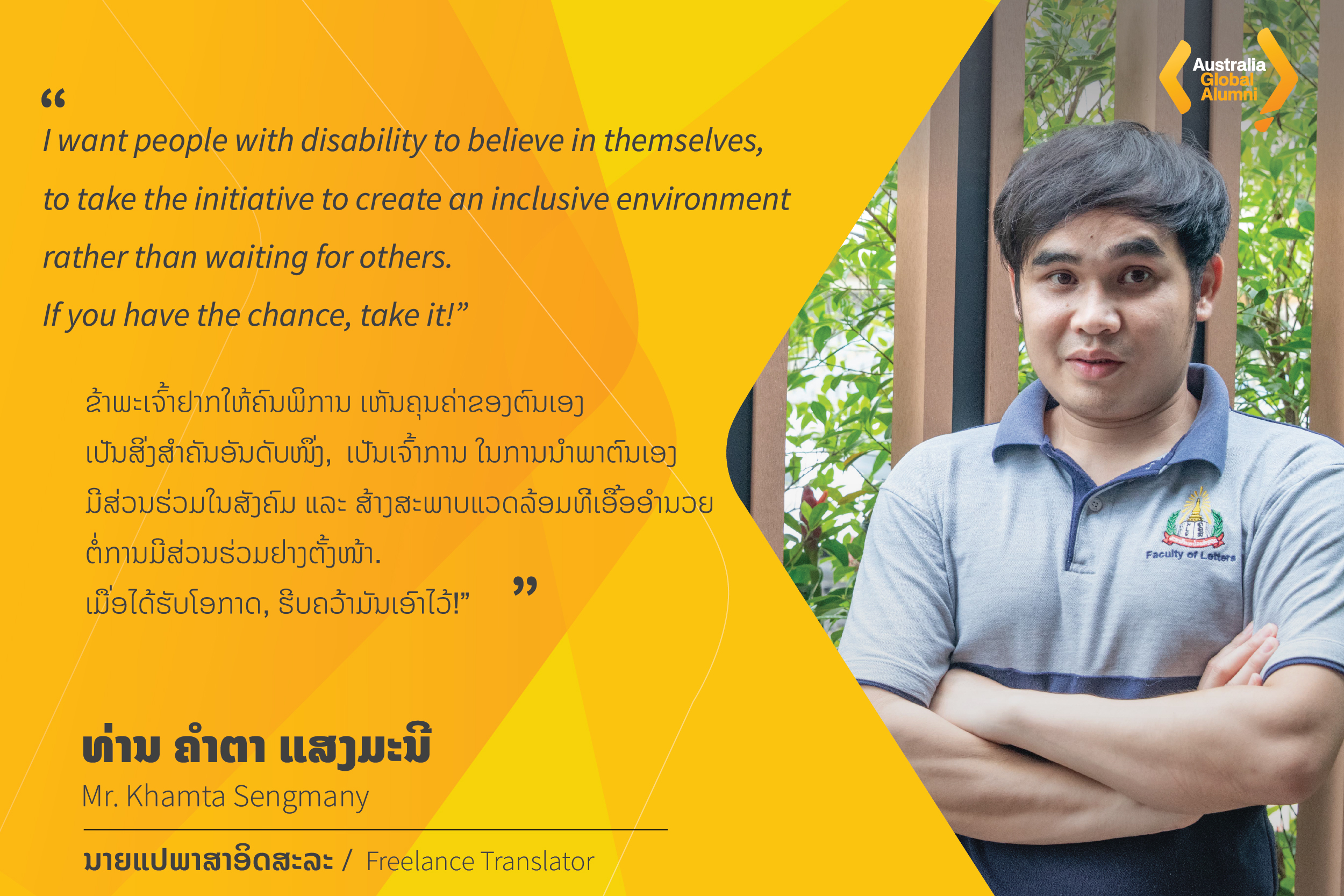
Khamta Sengmany was born in Phu Ngarm village in Lao’s central Bolikhamsai province. He explained “I am a person with disability, but I was not born with it. I became blind when I was young as my eyesight just suddenly decreased when I was 1-8 years old. I was the only person in my village with a disability, so the teachers didn’t know how to teach me. I continued going to school and sat outside the classroom to learn through listening. My mother was the one who taught me how to first write the Lao language because we didn’t know that braille existed.”
Khamta grew up in a family that values education. As a young child, his parents supported him and encouraged him to continue his education. At the age of 10, Khamta travelled to Vientiane to check his eyesight. They referred him to a local center for the vision impaired and it was here that he learned how to use braille. Khamta says “The centre provided me with lessons on how to live my daily life as well as braille. I stayed there and graduated from high school.”
Later in 2012, Khamta was offered the opportunity to take part in an exchange program in Thailand, however a pre-requisite was being able to understand English, a skill that Khamta had not yet mastered “Coming from a rural area, English was not part of my interest as it was not the language that we used every day. When I was asked to join the exchange program in Thailand, I discovered that I was the only one who couldn’t speak English. It made me feel ashamed, so this was when I got the inspiration and motivation to study English at the National University of Laos. After learning and being able to speak English, I had more chances to attend exchange programs in Malaysia, Singapore, and Indonesia.”
In 2022, Khamta was selected as one of the Lao National Athlete Team for goalball competition at 11th ASEAN Paragames in Indonesia. In the same year, he was also chosen to be a Lao Youth with Disabilities presenting at ASEAN Youth Submit in the Philippines.
Khamta was able to attend the National University of Laos through the support of the Laos Australia National Scholarship program. The scholarship covers education and living expenses and tries to identify the needs of each student to ensure they have the support needed to be successful. For Khamta this included accessible computers, magnifiers and braille machines for students who are sight impaired. Khamta says “The Laos Australia National Scholarship provides opportunities for people with disabilities, giving everyone a chance to complete their education.”
After graduating, Khamta went on to work for the Asian Development with Disabled Persons (ADDP) and provided advice to teachers at universities in Vientiane and Savannakhet on how best to support and teach students with disabilities. Today he is working as a freelance translator and hopes to open his own business. Khamta breaks down life barriers through his strong self-determination, pursuing his values in education, diversity, and social inclusion. Khamta believes that education provides the best opportunity and has helped him to broaden his perspectives, experiences, and social circles.
Finally, Khamta has good advice for people living with disability in Laos. “I want people with disability to first acknowledge themselves, you must believe in yourself first before others can believe in you. For people living with disability in Laos, I say, if you have the chance, take it!”
